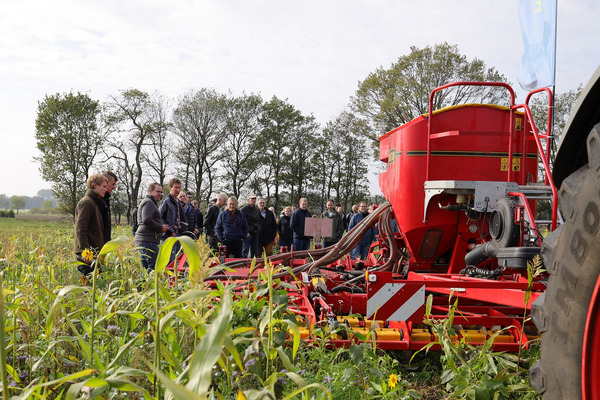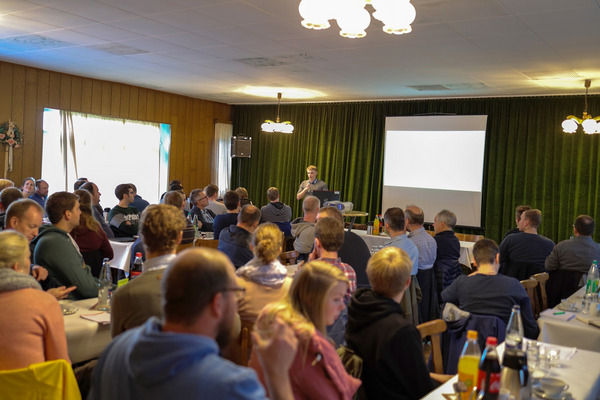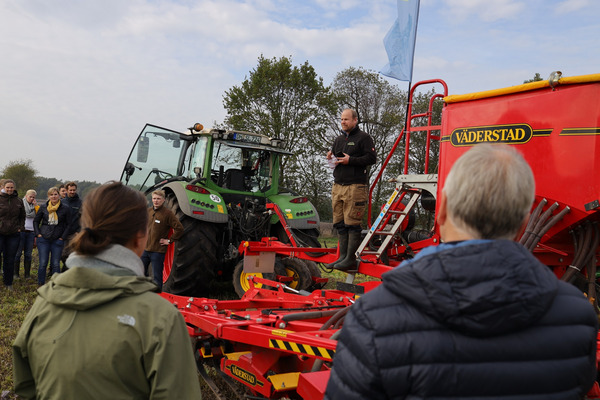Around 80 farmers, advisors and students gathered near Sulingen. First Hauke Ahnemann, leader of case study 3, explained the basic soil functions: ‘The ideal soil holds enough water, saves nutrients and can support machinery when needed. All of this can be influenced by our practices.’ The increase of soil organic matter and the facilitation of soil life could have particularly high potential.
What this could look like in practice was explained by Maximilian Henne from the German Society of soil conservation cultivation (GKB e.V.). As a farmer and advisor, he has managed around 100 hectares under no-tillage for seven years. In addition to the main crops (barley, wheat, oilseed rape and beans), catch crops are used whenever possible to achieve plant cover over the whole year. ‘The chemical and physical properties of the soil are important, before direct seeding can be introduced’, Henne advised. The improved soil life guarantees stable yields, increases the soil’s ability to support machinery and reduces the need for artificial plant protection and fertilization.
The field day was concluded with a practical demonstration on the fields of the poultry farm Schierholzer Wiesenei. Alexander Schierholz-Prilop discovered direct sowing in Ukraine, and now wants to convert the farm together with his family. During the demonstration, he showed a vetch-rye mixture being sown into a diversified catch crop with and without tillage. Hereby Henne explained practical things about the no-tillage system.
This field day was a great success for the case study. With the exploration of no-tillage in northern Germany, the regional crop rotations will be diversified to enhance water quality and stabilize yields against extreme weather conditions.






 tap and then scroll down to the Add to Home Screen command.
tap and then scroll down to the Add to Home Screen command.